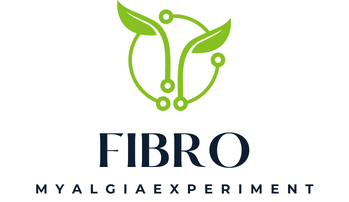The Relationship Between Journaling and Cognitive Health
Journaling – it has been a tool employed by scholars, the likes of Leonardo Da Vinci and Sir Isaac Newton, for centuries. It is not just a medium for expressing thoughts, but also a powerful tool for cognitive development. Let’s delve into how the daily practice of journaling can enhance your cognitive function and aid memory retention.
For many, journaling is an expressive outlet for emotional turbulence, a method for capturing fleeting thoughts, and a canvas on which life unfolds. It is not surprising that this age-old practice can have a profound impact on our mental health. What may be surprising, however, is that it also has the potential to directly influence our cognitive abilities.
Dans le meme genre : Can Regular Participation in Water Polo Improve Cardiovascular Health and Teamwork Skills?
The Science Behind Journaling and Cognitive Function
Like a muscle, the brain can be trained and strengthened. According to several scientific studies, writing activates areas of the brain associated with language and enhances the brain’s cognitive function. For example, a study published on Google Scholar found that the act of writing can increase working memory capacity.
In this study, the participants were asked to write about stressful events in their lives. They found that those who engaged in writing exhibited improved memory function compared to those who did not write about their experiences. The researchers believe that by writing, individuals can free up cognitive resources occupied by stress and negative emotions, thus leading to improved working memory capacity.
A lire en complément : How Does Vagus Nerve Stimulation Affect Chronic Depression and Anxiety?
On top of this, expressive writing is shown to increase connectivity in the brain, particularly between the part of the brain responsible for controlling your ‘fight or flight’ response and the region that is involved in self-related thinking. This connectivity can help in the reduction of stress and the improvement of physical health, which, in turn, positively impacts cognitive functions.
The Role of Journaling in Emotional Health
Journaling does not only affect cognitive abilities and memory; it also has a significant impact on emotional health. By enabling you to articulate your thoughts and feelings, journaling helps you gain control over your emotions. This practice of self-expression can reduce the intensity of negative emotions and increase your ability to manage stress.
In another study conducted on Google Scholar, participants who journaled their negative thoughts showed a reduction in depressive symptoms compared to those who did not. This suggests that writing can serve as a tool for emotional regulation, helping to reduce the impact of negative emotions on physical and cognitive health.
The Power of Gratitude Journaling
The benefits of journaling are not limited to expressive writing about negative experiences. The practice of gratitude journaling, where individuals write about things they are grateful for, has also been shown to have positive effects on cognitive function and memory.
In a study published on Google Scholar, participants who kept gratitude journals showed an increase in optimism, a factor linked to better cognitive function. Moreover, these individuals also demonstrated a decrease in negative affect and physical complaints. Notably, gratitude journaling also improved sleep quality, which is crucial for memory consolidation.
Making Journaling a Habit for Cognitive Health
To reap the benefits of journaling for cognitive health, it is essential to make it a consistent practice. The brain thrives on consistency, so regularity in journaling can lead to the strengthening of neural pathways, enhancing cognitive function over time.
If you’re new to journaling, start by setting aside a few minutes each day to write. You may find it helpful to write at the same time each day, such as in the morning when your mind is fresh, or at night as a form of reflection. Remember, there’s no right or wrong way to journal. This is your personal space to express your thoughts and feelings, and every entry contributes to your cognitive health.
Incorporating journaling into your daily routine can lead to improvements in cognitive function, memory, and emotional health. The act of writing engages the brain in a unique way, strengthening neural connections and enhancing memory. So, grab a pen and start journaling your way to better cognitive health today.
The Long-Term Benefits of Journaling
The benefits of journaling are not merely short-lived but can have enduring effects on cognitive function and emotional well-being. Long-term journaling can lead to improved working memory, better emotional regulation, and enhanced cognitive ability.
As per a publication on Google Scholar, consistent expressive writing over a significant period can improve cognitive processing and emotional health. Journaling fosters a habit of introspection, enabling individuals to explore their thoughts and feelings in depth and gain a better understanding of themselves. This introspective practice can help individuals manage their emotional health, mitigating the impacts of depression and anxiety.
Journaling also improves working memory. The act of writing requires focused attention and cognitive effort, bolstering the brain’s ability to remember and process information. Repeatedly engaging in this cognitive exercise through daily journaling can enhance memory function over the long term.
Moreover, consistent journaling can also contribute positively to physical health. By reducing stress and helping manage negative emotions, journaling can alleviate physical symptoms associated with these psychological states. A healthier physical state can, in turn, promote better cognitive function.
Conclusion: Embrace Journaling for Better Memory and Cognitive Health
In summary, the daily practice of journaling holds a wealth of benefits for cognitive health and memory. The act of expressive writing activates brain areas associated with language, leading to enhanced cognitive function. It improves working memory, reduces the impact of negative emotions, and fosters better emotional and physical health.
Moreover, gratitude journaling has been shown to increase optimism and improve sleep quality—factors crucially linked to better cognitive function and memory. It’s clear that making journaling a consistent part of your daily routine can have long-term benefits for your mental and physical well-being.
Whether you’re coping with stress, managing depression and anxiety, or simply seeking a tool to improve your cognitive abilities, journaling can be immensely beneficial. It is a cost-effective, accessible, and flexible practice that can be tailored to your needs and preferences.
So, pick up a pen and begin your journey to better cognitive health by starting your journaling practice today. Use this tool to express your thoughts and feelings, write about your gratitude, and engage your brain in a meaningful way. Remember, every entry you make is a step towards improved cognitive and emotional health.






